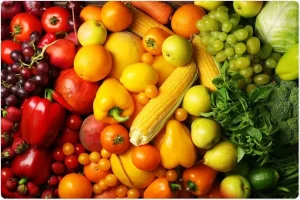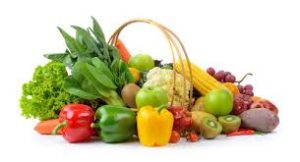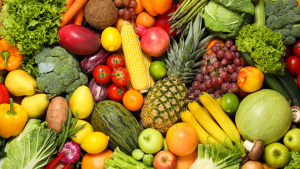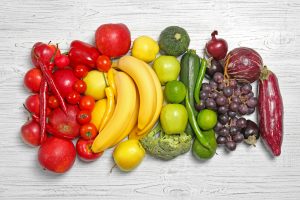
Vegetables and fruits. Packed with vitamins, minerals, fiber, and antioxidants, and vegetables are vital plant-based foods that promote healthy weight, digestion, and blood sugar levels while preventing diseases like diabetes, cancer, and heart problems. Although some “veggies” like tomatoes and cucumbers are actually fruits, fruits—like apples and berries—develop from blooms and contain seeds, whereas vegetables—like carrots and spinach are roots, stems, leaves, or flowers. To obtain a wide range of nutrients, strive for daily variation in color and type.
VEGETABLES AND FRUITS
Because of their nutrient density and low fat/sodium content, they are rich in vitamins, minerals, fiber, and antioxidants that dramatically reduce the risk of heart disease, stroke, certain types of cancer, and type 2 diabetes. They also promote healthy weight, digestion, blood pressure, blood sugar, skin, eyes, and a stronger immune system.
When they are in season, they are best purchased. If not, consider using canned or frozen veggies, which are equally nutrient-dense and cost-effective. A minimum of five servings of vegetables and two servings of fruit should be consumed daily. Select several hues.
Importance;

vegetables and fruits
1. Vitamins and minerals are abundant in fruits and vegetables. Nothing is more nutrient-dense than fruits and vegetables, which are a great source of folic acid, magnesium, zinc, phosphorus, and the vitamins A, C, and E. Eat lots of avocados, sweet potatoes, bananas, prunes, and even pureed tomato sauce if you’re looking to increase your intake of potassium, one of the most vital elements.
2. You get to enjoy a variety of flavors and textures. With all their unique and interesting flavors, plant-based foods let you get creative in the kitchen. You can try strong flavors like onions, olives, and peppers.

vegetables and fruits
3. A ton of fiber—a ton of fiber. Although some have more fiber than others, most fruits and vegetables have enough to keep you full and improve intestinal health. other important of vegetables and fruits include;
4. They have little fat and few calories.
5. minimal in cholesterol and salt. Trace levels of salt are present in it.
6. Any type of food—fresh, frozen, canned, or dried—is nutrient-dense. Whether you choose to consume fresh fruits and veggies or not, there aren’t many nutritional differences between frozen, canned, or dehydrated foods. In actuality, the nutritional value of the majority of canned and frozen goods is rapidly locked in since they are processed within hours of harvest.

6. Easy, quick, and convenient. For the most part, fruits and vegetables don’t require packaging, unlike granola bars or crackers.
Summary
They should make up a significant portion of your daily diet. They include vitamins and minerals that can promote your health and are naturally nutritious. Additionally, they might help prevent some diseases. Most Australians will benefit from eating more of it as part of an active lifestyle and a healthy, balanced diet. There are many different types, and there are many ways to prepare, cook, and serve them.